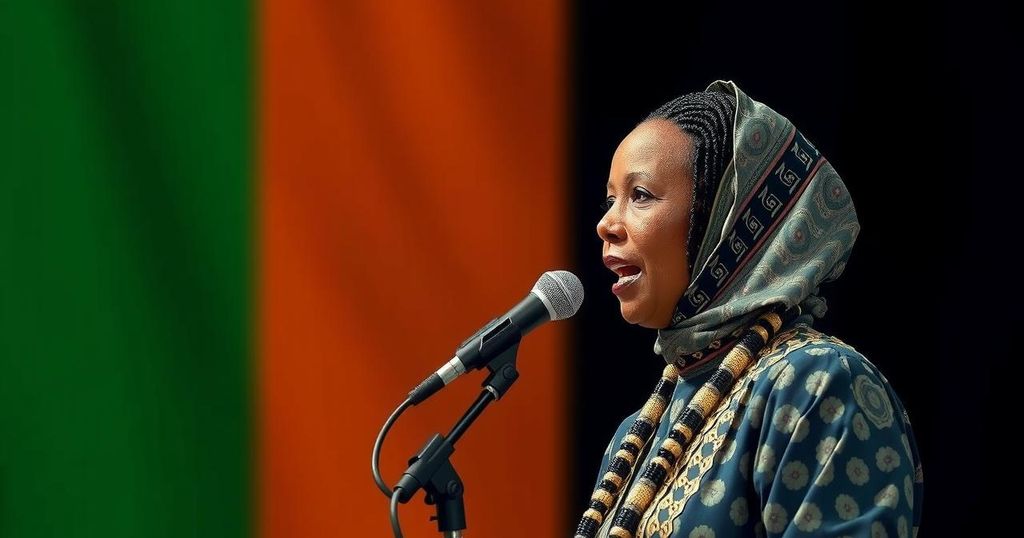Namibia’s Historic Presidential Election: A Chance for Leadership Change
Namibia’s presidential election features Netumbo Nandi-Ndaitwah, a leading candidate aiming to become the first female president. Despite SWAPO’s longstanding dominance, economic challenges and rising unemployment could affect their prospects. With 1.4 million registered voters, the outcome is uncertain and could lead to a runoff election, marking a significant moment in Namibian political history.
Namibia has commenced its presidential election, presenting a historic opportunity as a prominent female figure emerges as a contender for the presidency. Netumbo Nandi-Ndaitwah, aged 72 and currently serving as vice president, is representing the ruling SWAPO party, which has led the nation for over three decades since its independence in 1990. Early voting results indicate her favorable position, yet the party faces mounting challenges, including high unemployment and economic discontent among the youth.
SWAPO has experienced a decline in popularity, highlighted by its disappointing electoral performance in 2019. Should no candidate secure over 50% of the vote, a runoff election will ensue, a scenario that has not previously occurred in Namibia. Currently, 1.4 million Namibians are registered to vote, amid concerns that will shape the election narrative. Nandi-Ndaitwah’s campaign emphasizes job creation and addressing various women’s issues, critical topics resonating with the electorate.
This election marks a significant moment in Namibian history as it could culminate in the election of the nation’s first female president. The political landscape is characterized by SWAPO’s prolonged leadership, facing increasing scrutiny due to rising unemployment rates and public dissatisfaction. The candidacy of Nandi-Ndaitwah, an influential figure with roots in the independence movement, has the potential to make strides for women’s representation in a region traditionally dominated by male leaders. Additionally, the election is framed against a backdrop of political shifts in neighboring countries experiencing electoral upheavals.
In conclusion, Namibia’s presidential election not only offers a chance for a pivotal change in leadership but also represents a broader shift towards female representation in politics. While Netumbo Nandi-Ndaitwah stands as a historic candidate, the waning support for her party amidst economic challenges poses significant hurdles. The election results will not only determine Namibia’s future direction but will also reflect the voices of an increasingly frustrated electorate, particularly its youth.
Original Source: abcnews.go.com




Post Comment